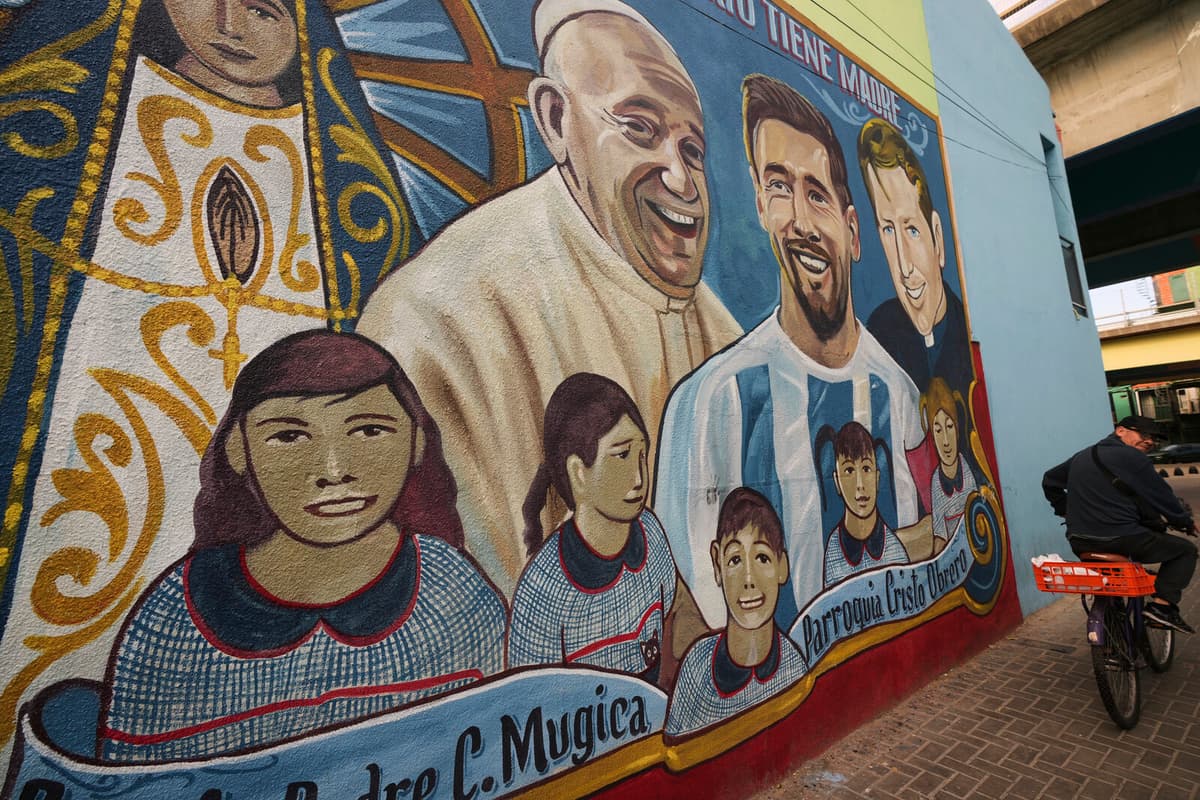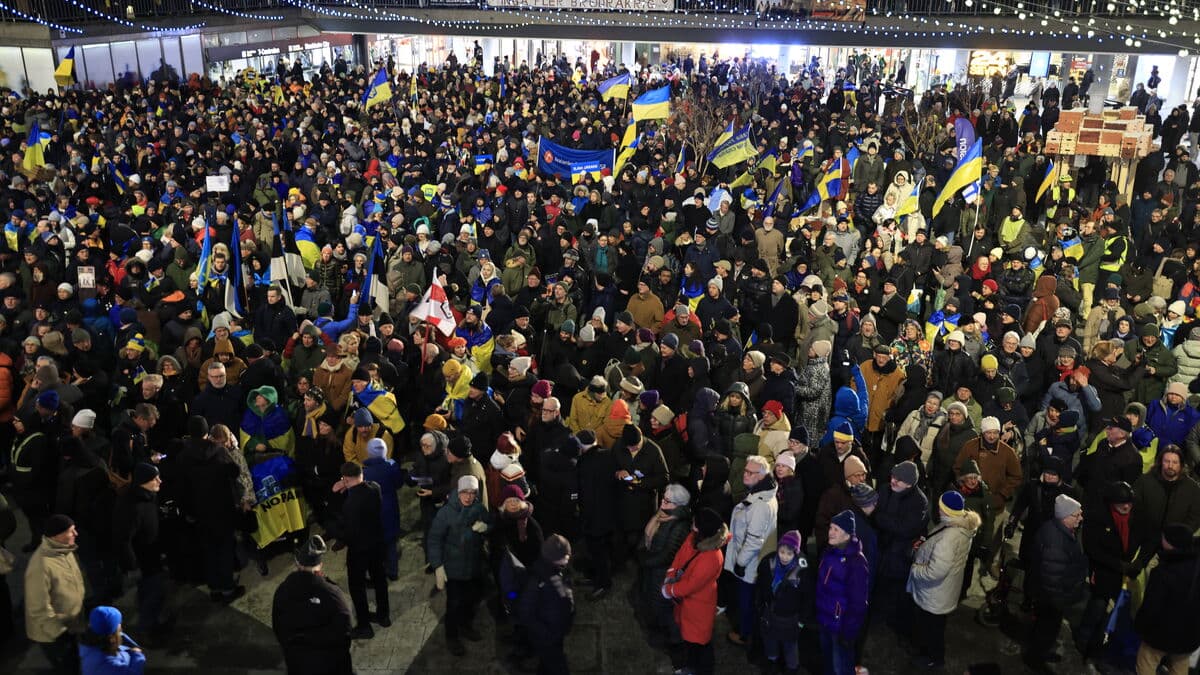07.35 on Easter Monday, Franciskus passed away and his 88-year-long time on earth was over.
The funeral ceremony will be held on Saturday at 10 am on St. Peter's Square.
From several of football's leading representatives, condolences and personal memories are pouring in about a man who loved football and saw it as an enormous unifying force in a time of tensions and conflicts.
Fellow countryman Lionel Messi opened his Instagram account and wrote: "Thanks for making the world a better place. We will miss you".
Gianni Infantino, the President of the International Football Federation, wrote that the Pope "Always shared his enthusiasm for football and emphasized the important role our sport plays in society."
Played on the streets
Pope Franciskus – or Jorge Mario Bergoglio as he was called – love for football was awakened when he as a child followed his father and brothers to San Lorenzo's matches in Buenos Aires.
As a boy, he often played with his friends on the streets in the Flores neighborhood, with a ball made of rags.
Franciskus described himself as a player with "two left feet" and that he often was the goalkeeper, which was "a good way to learn how to handle dangers coming from all directions".
"He was always one of us", wrote San Lorenzo on Instagram about member number 88,235.
Football and the church go hand in hand in the club founded by priest Lorenzo Massa in 1908 and called "The Saints". Last year, San Lorenzo asked the Pope for permission to name the club's planned new arena after him. Something a moved Franciskus immediately said yes to.
Inherited a legacy
Jorge Bergoglio inherited with his football interest a legacy when he was elected Pope Franciskus in 2013.
John Paul II, Pope between 1978 and 2005, was also a goalkeeper during his childhood in Poland. During his long tenure, the Selezione di calcio della Città del Vaticano – the Vatican City's own men's national football team – was founded.
"Of all unimportant things, football is the most important", John Paul II is said to have said.
Franciskus formulated his love declaration to the sport with these words: "Many say that football is the most beautiful game in the world. I think so too".
But with the players' enormous popularity comes also a social responsibility, pointed out Franciskus. He was also concerned about football's increasingly evident commercialization. The Argentine saw football as a religion, as something greater than the individual.
A community, where the team comes before the individual.






